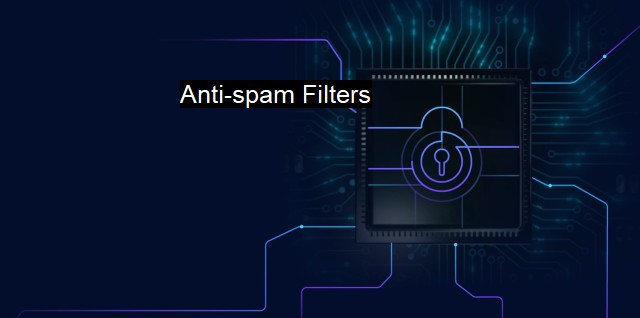What are Anti-spam Filters?
Importance of Anti-spam Filters in Ensuring Information Security in the Modern Technological Age
Anti-spam filters are crucial instruments in the complex system of cybersecurity. They are tools designed specifically to reduce or eliminate any unwanted spam emails that have the potential to contain harmful malware or evade cybersecurity measures. These emails threaten the security of computers by possibly invading systems or stealing sensitive data, like financial information and personal details, without the users’ knowledge. Therefore, understanding modern anti-spam filters, their functionality, and their importance is crucial when dealing with cybersecurity and antivirus issues.Anti-spam filters act in several ways to prevent spam from infiltrating a digital environment. Their prime objective is to authenticate the emails that users receive. During the filtration process, an email will go through several levels of filtering, starting from basic, routine checks to more sophisticated analyses. For instance, they evaluate the origin or source of emails; those from dubious or suspicious sources are recognized and designated as potential spam.
Anti-spam filters also scrutinize the subject line and the content of each message. They search for phrases that are often employed in spam mails, links to unfamiliar websites, or alterations in the encoding language. Spam emails often are encoded differently or contain unrecognizable languages to avoid detection from simple filters.
Beyond this surface examination, they utilize intricate algorithms to identify spam. Utilizing heuristics, these filters trace patterns connecting to past spam instances. Each level of the filter uses different tactics to recognize and eliminate potential threats, making this multi-level filtering strategy a formidable barrier against spam emails.
A critical factor to note is that these filters should always remain up-to-date. Why so? That's because cybercriminals often change their strategies and tactics to bypass the security measures. Effective filters update themselves regularly to recognize these emerging trends and to keep security intact while being flexible. Most quality anti-spam filters evolve with the advancement of technology and autonomously learn from the spam emails they filter, increasing their effectiveness over time.
Another essential aspect about anti-spam filters, particularly for businesses, is that these tools can be hosted locally or cloud-based. While local hosting means low latency, the cloud-based option provides higher flexibility and scalability. Regardless of the choice, these tools’ provision for configuration management ensures filters can be fine-tuned to serve unique individual or enterprise needs.
Apart from availing themselves with existing anti-spam filters, consumers are also advised to be proactive about safeguarding their emails. Common preventive measures include cautious about opening unfamiliar emails and refraining from clicking on foreign links. Equally pivotal is to have other robust cybersecurity measures in place, such as firewalls and antivirus software, for holistic digital protection.
Anti-spam filters are pivotal in battling the persistent issue of spam emails in the realm of cybersecurity and digital communication. They provide an important line of defense against potential digital threats by eliminating or reducing spam. The several layers of defense provided by these filters, along with more advanced processes like heuristics and algorithmic examination, indicate that anti-spam filters are more than capable of providing a relatively safe environment for electronic communications. Besides, their capacity to constantly evolve makes them an indispensable tool to counter evolving digital threats. The key lies in understanding their utility, keeping them updated, incorporating them into a larger cybersecurity strategy, and practicing caution in the digital world.

Anti-spam Filters FAQs
What is an anti-spam filter?
An anti-spam filter is a tool or software designed to identify and block unsolicited and unwanted emails from entering your inbox. It is an essential component of cybersecurity and antivirus software.How do anti-spam filters work?
Anti-spam filters detect spam emails by analyzing various elements such as the sender's email address, content, and metadata. The filters use algorithms to check if the email matches any pre-defined criteria for spam. If the email is found to be spam, the filter will either quarantine it or delete it altogether.How effective are anti-spam filters in preventing cyber threats?
Anti-spam filters are highly effective in preventing cyber threats such as phishing attacks, malware, and ransomware. These filters work in real-time, and the algorithms are continuously updated to keep up with evolving cyber threats. However, it is essential to keep your antivirus software updated to ensure maximum protection from cyber threats.Can anti-spam filters block legitimate emails?
There is always a possibility that anti-spam filters can block legitimate emails, but this is a rare occurrence. It can happen if the email contains certain keywords or phrases that trigger the filter or if the sender's email address is flagged as spam. However, you can usually find these emails in your spam or quarantine folder, where you can review and mark them as not spam to prevent the filter from blocking them in the future.| | A | | | B | | | C | | | D | | | E | | | F | | | G | | | H | | | I | | | J | | | K | | | L | | | M | |
| | N | | | O | | | P | | | Q | | | R | | | S | | | T | | | U | | | V | | | W | | | X | | | Y | | | Z | |
| | 1 | | | 2 | | | 3 | | | 4 | | | 7 | | | 8 | | |||||||